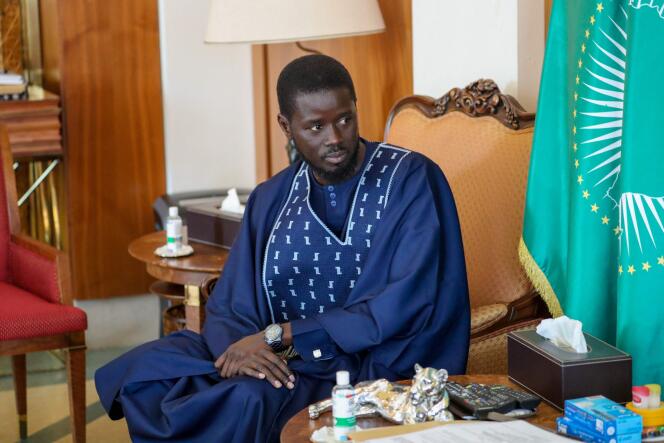In a bold move that has sent ripples through Senegal’s political landscape, President Bassirou Diomaye Faye announced on Thursday the dissolution of the opposition-led parliament, setting the stage for a snap legislative election on November 17. This decision, coming just six months after Faye’s own election on an anti-establishment platform, marks a significant shift in the country’s political dynamics.

In a televised address to the nation, Faye, 44, Africa’s youngest elected leader, appealed directly to voters to grant his party a mandate that would enable him to implement the “systemic transformation” he promised during his campaign. “The time has come for us to align our legislative body with the will of the people,” Faye stated, emphasizing the need for a parliament that would support his reform agenda.
The move has been met with sharp criticism from the Benno Bokk Yaakar opposition platform, led by former President Macky Sall. In a strongly worded statement, they accused Faye of “perjury,” claiming he had convened a legislative session under false pretenses to announce the dissolution.
Faye’s rise to power in March was meteoric, winning 54% of the vote less than two weeks after his release from prison. His campaign resonated deeply with Senegal’s youth, who make up over 60% of the population and have grown increasingly frustrated with the country’s direction. Faye’s promises of widespread reforms to improve living standards, fight corruption, and secure a bigger share of the country’s natural resources for the population struck a chord with voters.
However, six months into his presidency, many of these pledges remain unfulfilled. Faye and his Prime Minister, Ousmane Sonko, a popular opposition figure instrumental in Faye’s victory, have pointed to the opposition-controlled parliament as the main obstacle to their reform agenda. Their party, PASTEF, lacks a majority in the assembly, leading to legislative gridlock.
The tensions between the government and parliament reached a boiling point in June when the opposition coalition canceled a budgetary debate, disputing whether Sonko was required to present his government’s policy roadmap. This impasse has highlighted what political analyst Alioune Tine describes as “unprecedented” tensions resulting from “dysfunctions of the electoral process of the 2024 presidential election.”

While Faye’s decision to dissolve parliament and call for new elections may offer a path to break the deadlock, it is not without risks. Gilles Yabi, founder of the WATHI think tank, points out that the assembly has until the end of December to vote on next year’s budget. The timing of the new legislative elections could make it challenging to meet this crucial deadline.
The political maneuvering takes place against a backdrop of significant economic and social challenges. Senegal has been grappling with skyrocketing inflation, making life increasingly difficult for its predominantly young population, 90% of whom work in informal jobs. The country has also become a major source of irregular migration to Europe, with thousands risking their lives on dangerous sea crossings in search of better opportunities.
The announcement of the snap election came just days after a tragic incident where a boat carrying nearly 90 migrants capsized, resulting in at least 39 deaths. This stark reminder of the desperate circumstances facing many Senegalese underscores the urgency of the reforms Faye has promised.
As Senegal prepares for this unexpected electoral contest, the international community watches closely. The country’s reputation as a stable democracy in a region marked by political upheaval hangs in the balance. The outcome of the November 17 election could determine not only the fate of Faye’s reform agenda but also Senegal’s trajectory as a democratic model in West Africa.
apnews.com


